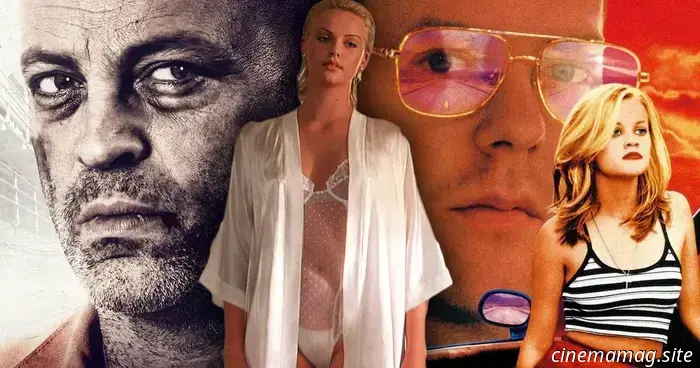
10 Movies in the Style of Tarantino That You Should Include on Your Watch List
Casey Chong presents a collection of films reminiscent of Quentin Tarantino that are definitely worth watching...
Love him or hate him, it’s undeniable that Quentin Tarantino’s films, especially his early works Reservoir Dogs and Pulp Fiction, have significantly impacted numerous filmmakers attempting to replicate his distinctive style. His trademarks, including signature non-linear storytelling, exaggerated violence, vivid characters, and pop-culture references, are essential elements found in many movies that embody the Tarantino-esque vibe. Here are ten notable examples...
Blood, Guts, Bullets and Octane (1998)
It's often overlooked that Joe Carnahan began his career with a low-budget independent film. He made his feature-length directorial debut with Blood, Guts, Bullets and Octane for just $7,300, and he successfully brought it to life. Although the film might appear rough, it's clear that Carnahan has skill behind the camera, taking on various roles, including writing, producing, editing, and even acting as a used car salesman in one of the leads.
The story is chaotic, with Carnahan making excellent use of his limited funds. The influence of Tarantino is evident, particularly in the pop-culture-laden dialogue that echoes Reservoir Dogs and Pulp Fiction. The standout moment is the opening scene, featuring two used car salesmen (Carnahan’s Sid French and Dan Leis’ Bob Melba) employing every trick in the book to persuade customers to buy their cars. Carnahan also channels Oliver Stone’s visual style with rapid editing, handheld shots, and a mix of black-and-white sequences, all efficiently wrapped up in under 90 minutes.
Grosse Pointe Blank (1997)
In Grosse Pointe Blank, hitman Martin Blank (John Cusack) exclaims “Popcorn!” and the ensuing scene takes a surprising turn. In the ‘90s, casting someone like John Cusack as a hitman was seen as audacious, but his laid-back and charismatic performance works exceptionally well. The film blends various comedic elements—from dark humor to action, interlaced with a touch of romance between Martin and his high school love, Debi (Minnie Driver).
The dialogue is sharp, and George Armitage, known for Miami Blues featuring Alec Baldwin, successfully balances the film’s darker and lighter tones. The movie also features an exuberant Dan Aykroyd as Martin's rival hitman, while the action scenes exude a stylish, John Woo-like energy, particularly evident during the engaging convenience store shootout.
Go (1999)
Doug Liman began his career with comedies in the ‘90s, and his third film, Go, remains one of his finest achievements. This fast-paced and clever crime comedy showcases a Tarantino-esque vibe, focusing on three different perspectives: Ronna (Sarah Polley), who needs quick cash to avert eviction; Ronna’s co-worker Simon (Desmond Askew), whose attempt to go to Las Vegas spirals into chaos; and two actors (Scott Wolf and Jay Mohr) who pretend to buy ecstasy pills to aid a detective (William Fichtner) in busting a dealer.
The intertwining stories are well-paced, featuring plenty of clever dialogue and captivating characters facing their challenges. Liman injects youthful energy into the film, combining genuine humor and violence into an exhilarating cinematic experience from start to finish.
Freeway (1996)
In Matthew Bright’s debut feature, he delivers a darkly twisted take on the classic Little Red Riding Hood tale. The early scenes introduce 14-year-old Vanessa Lutz (Reese Witherspoon, delivering one of her standout early performances) as she endures watching her mother and stepfather get arrested and then fleeing from her social worker, but things take a darker turn when she accepts a ride from a seemingly friendly driver (Kiefer Sutherland).
What begins as a harmless trip on the freeway rapidly becomes more sinister as Sutherland’s character turns out to be a wanted serial killer. He embodies the archetype of the big bad wolf, aptly named Wolverton (get it?). Interestingly, while Witherspoon’s Vanessa is initially portrayed as a naive young girl, she soon proves to be far from helpless. This shift in characterization transforms her from a victim into a fearless anti-heroine, subverting expectations.
2 Days in the Valley (1996)
While it might be tempting to accuse 2 Days in the Valley of copying Pulp Fiction, albeit without a non-linear narrative, writer-director John Herzfeld’s ensemble crime comedy has its unique charm. The film revolves around multiple characters whose stories intertwine. It starts with two hitmen (James Spader and Danny Aiello), each with vastly different personalities: one cold and sadistic, the other more adaptable.
A murder triggers a chain reaction of events in the San Fernando Valley, involving Teri Hatcher’s frantic former Olympic athlete dealing with her deceased ex-husband, a suicidal TV director









Other articles
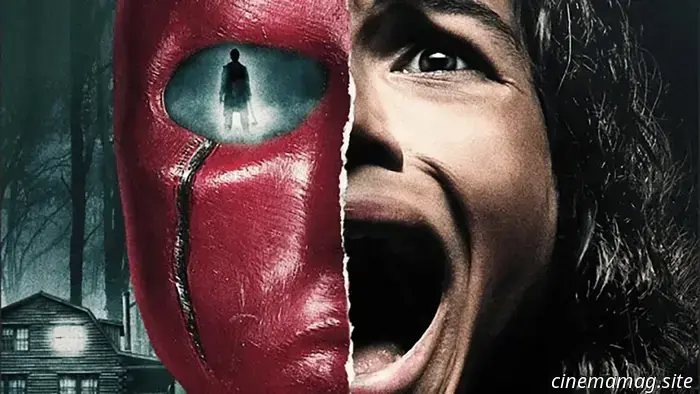 The Red Mask, a meta slasher film, has released a trailer, poster, and images.
In conjunction with its US premiere this weekend, a poster, trailer, and promotional images have been released online for The Red Mask, a meta-slasher directed by Ritesh Gupta. Helena Howard plays the role of Allina,…
The Red Mask, a meta slasher film, has released a trailer, poster, and images.
In conjunction with its US premiere this weekend, a poster, trailer, and promotional images have been released online for The Red Mask, a meta-slasher directed by Ritesh Gupta. Helena Howard plays the role of Allina,…
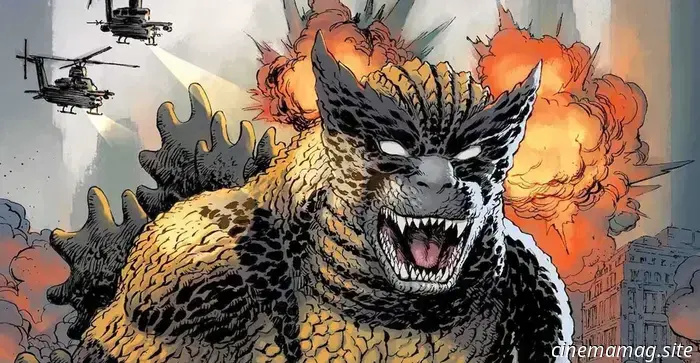 Comic Book Teaser – Godzilla Destroys The Marvel Universe #4
Marvel Comics is set to release Godzilla Destroys The Marvel Universe #4 this Wednesday, and you can check out a preview of the issue below with the official sneak peek... GODZILLA SMASH! It's Go...
Comic Book Teaser – Godzilla Destroys The Marvel Universe #4
Marvel Comics is set to release Godzilla Destroys The Marvel Universe #4 this Wednesday, and you can check out a preview of the issue below with the official sneak peek... GODZILLA SMASH! It's Go...
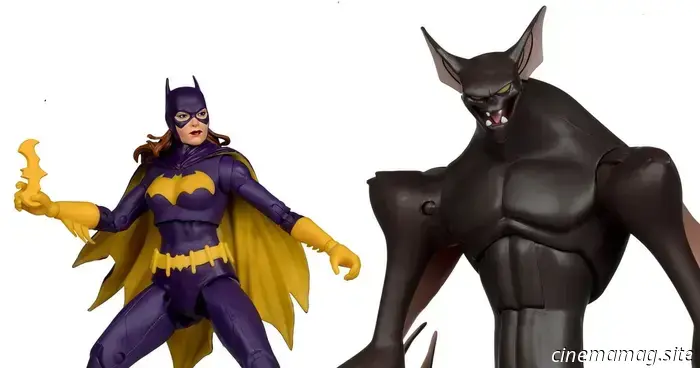 McFarlane Toys reveals new DC Direct figures of Batgirl, Blackfire, Man-Bat, and Red Tornado.
McFarlane Toys has officially started pre-orders for a range of new DC Direct figures, including Batgirl (DC Classic), Blackfire (The New Teen Titans), and Red Tornado (DC: The Bronze Age), as well as a Gold La…
McFarlane Toys reveals new DC Direct figures of Batgirl, Blackfire, Man-Bat, and Red Tornado.
McFarlane Toys has officially started pre-orders for a range of new DC Direct figures, including Batgirl (DC Classic), Blackfire (The New Teen Titans), and Red Tornado (DC: The Bronze Age), as well as a Gold La…
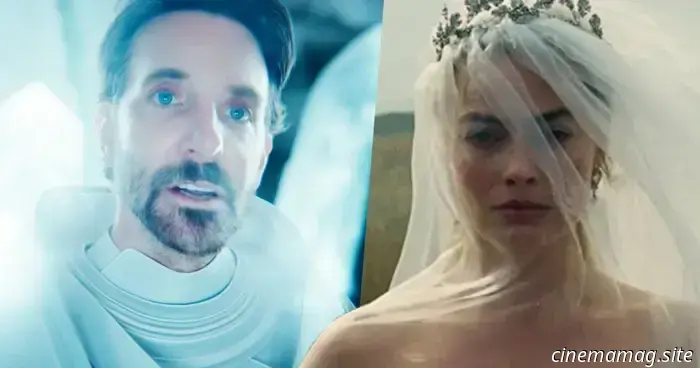 Bradley Cooper is set to star alongside Margot Robbie in the prequel to Ocean's 11.
After being inactive for a few years following the previous update, Warner Bros. is starting to make progress on the Ocean’s 11 prequel featuring Margot Robbie. The film will be directed by…
Bradley Cooper is set to star alongside Margot Robbie in the prequel to Ocean's 11.
After being inactive for a few years following the previous update, Warner Bros. is starting to make progress on the Ocean’s 11 prequel featuring Margot Robbie. The film will be directed by…
 Comic Book Sneak Peek – Die!Namite: Blood Red #1
Dynamite Entertainment is set to return to its zombie-filled Die!Namite universe this Wednesday with the release of the new limited series Die!Namite: Blood Red, and you can catch an early glimpse at...
Comic Book Sneak Peek – Die!Namite: Blood Red #1
Dynamite Entertainment is set to return to its zombie-filled Die!Namite universe this Wednesday with the release of the new limited series Die!Namite: Blood Red, and you can catch an early glimpse at...
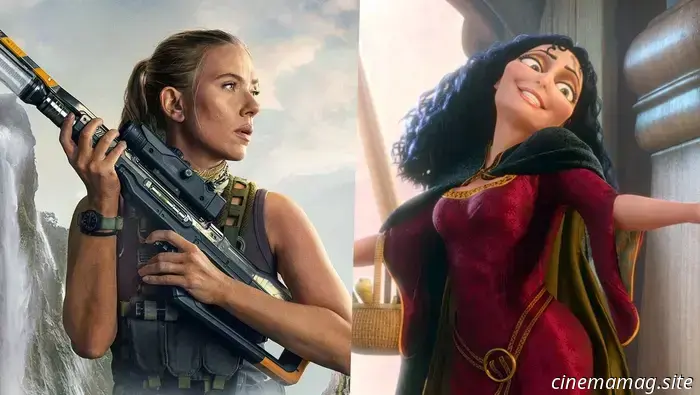 The live-action adaptation of Tangled is back in development, featuring Scarlett Johansson attached to the project.
Disney is making another attempt at its live-action adaptations of animated classics, with Deadline reporting that Tangled is returning to development and Scarlett Johansson is in discussions to appear in the film.
The live-action adaptation of Tangled is back in development, featuring Scarlett Johansson attached to the project.
Disney is making another attempt at its live-action adaptations of animated classics, with Deadline reporting that Tangled is returning to development and Scarlett Johansson is in discussions to appear in the film.
10 Movies in the Style of Tarantino That You Should Include on Your Watch List
Casey Chong presents a collection of movies reminiscent of Quentin Tarantino that are definitely worth a look. Whether you admire him or dislike him, it's difficult to overlook the impact of Quentin Tarantino's creations, especially his initial two feature films…
